Struggling to lose weight after 30? Discover the real reasons why your body is resisting fat loss and how to reset your hormones, metabolism, and energy — naturally.
Introduction:
Turning 30 is empowering — but your metabolism might not agree. Suddenly, the same workouts don’t work, the diet feels pointless, and belly fat? It won’t budge. If you’re a woman over 30 struggling to lose weight, you’re not alone. Science, hormones, lifestyle, and even your mindset are playing a role.
Let’s break down why this happens and — more importantly — how you can finally turn things around without starving yourself or living in the gym.
1. Hormonal Shifts After 30: The Hidden Weight Gain Trigger
Once you cross 30, hormones like estrogen, progesterone, and cortisol begin to shift.
- Estrogen imbalance can lead to fat storage around the hips and belly.
- Cortisol, the stress hormone, spikes more easily, encouraging fat storage.
- Your body’s ability to build muscle decreases, making fat loss harder.
✅ Fix it tip:
Incorporate strength training and reduce stress with mindful practices like yoga, meditation, or walking in nature.
2. Your Metabolism Isn’t Broken — It’s Just Slowed Down
By 30, your Basal Metabolic Rate (BMR) drops due to muscle loss and lifestyle habits. You burn fewer calories doing the same activities you did at 25.
- Less muscle = slower fat burn.
- More sitting = insulin resistance.
✅ Fix it tip:
Aim for 30 minutes of resistance workouts, 4–5 times a week. Add protein at every meal to preserve lean mass and boost metabolism.
3. Diet Mistakes Women Over 30 Commonly Make
You’re eating “healthy” but still gaining weight? That’s because:
- You’re under-eating (which slows metabolism).
- You skip breakfast or rely too much on coffee.
- You follow crash diets that wreck your hormones.
- You’re not tracking portion sizes.
✅ Fix it tip:
Follow the 80/20 rule: eat whole foods 80% of the time and allow some flexibility. Track your meals for awareness, not punishment.
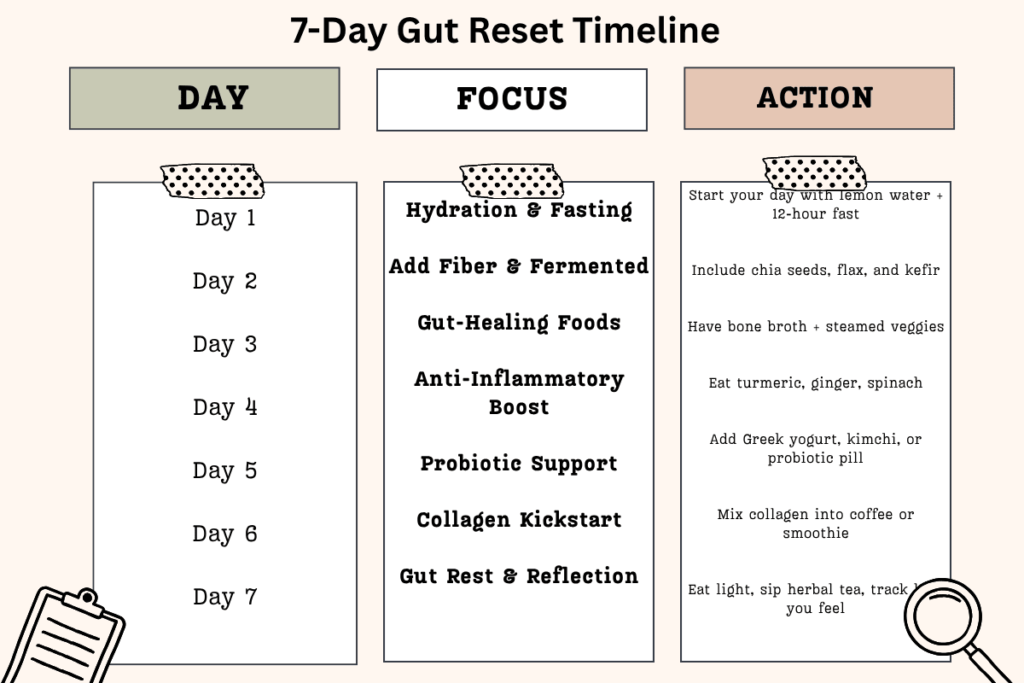
4. Stress, Sleep & Belly Fat: The Unholy Trio
Cortisol from chronic stress increases belly fat. Add poor sleep, and your hunger hormones (ghrelin and leptin) get messed up — making you crave junk food.
Women juggling career, family, and personal time are hit the hardest.
✅ Fix it tip:
Prioritize 7–8 hours of sleep, create a digital detox bedtime routine, and use breathwork or journaling to reduce mental clutter.
5. Your Body Is Changing — So Should Your Workout Strategy
What worked at 20 likely won’t work now.
- Excessive cardio stresses your adrenals.
- Your joints need low-impact movement.
- You need to build lean muscle for long-term fat burn.
✅ Fix it tip:
Mix HIIT, resistance bands, Pilates, and walking. Focus on progress, not punishment.
6. Emotional Eating & Mindless Snacking: The Hidden Weight Saboteurs
After 30, emotional eating becomes more prevalent due to work stress, relationship pressure, or parenting fatigue.
That glass of wine, that bag of chips, that entire chocolate bar? It all adds up when done unconsciously.
✅ Fix it tip:
Use a food-mood journal. Pause before snacking and ask: “Am I really hungry or just tired/anxious/bored?”
7. Gut Health = Weight Health (And Most Women Ignore It)
Your gut microbiome regulates digestion, nutrient absorption, and inflammation. Poor gut health = bloating, sugar cravings, low energy.
✅ Fix it tip:
Add fermented foods (like kefir, yogurt, kimchi), fiber-rich vegetables, and consider a probiotic supplement.
8. Realistic Fat Loss Timelines After 30
Set yourself up for sustainable success:
- 1–2 pounds per week is healthy fat loss.
- Focus on inches lost, energy gained, strength improved — not just the scale.
- Break goals into 90-day cycles with weekly checkpoints.
✅ Fix it tip:
Use an accountability tracker or app. Celebrate non-scale victories (NSVs) — like fitting into old jeans or waking up with more energy.
9. Top Foods That Help Women Burn Fat After 30
| Superfood | Why it Helps |
|---|---|
| Salmon | Omega-3s reduce inflammation & boost metabolism |
| Avocados | Healthy fats curb sugar cravings |
| Greek Yogurt | Protein-packed and gut-friendly |
| Green Tea | Natural metabolism booster |
| Eggs | Full of B vitamins and protein |
| Quinoa | Keeps you full and supports hormones |
10. Supplements Worth Considering
While food comes first, these evidence-backed supplements may support weight loss after 30:
- Magnesium Glycinate – helps with sleep and stress.
- Protein Powder (Plant or Whey) – fills protein gaps.
- Vitamin D3 – many women over 30 are deficient.
- Ashwagandha – helps regulate cortisol.
- Fiber supplements – improve digestion and fullness.
👉 Reminder: Always consult your doctor before starting supplements.
Read More: How can you lose weight without exercise or dieting?
🔥 How Many Calories Should YOU Eat to Lose Fat After 30?
You’re Not Broken — Your Strategy Is
Weight loss after 30 isn’t about punishment, deprivation, or detoxes. It’s about understanding your body, honoring its changes, and adapting smarter strategies.
You can do this. And FitZenHub will walk with you every step of the way.
📚 Sources:
- Harvard Health Publishing – Why is it hard to lose weight after 30?
- Cleveland Clinic – Hormones and Weight Gain in Women
- National Institute on Aging – Metabolism changes with age
- American Journal of Clinical Nutrition – Dietary fiber and fat loss
🙋 FAQs
Q1. Why is it so hard to lose weight after 30?
A: Hormonal changes, slower metabolism, insulin resistance, and higher stress levels can make fat loss difficult for women over 30.
Q2. Does fiber help with belly fat?
A: Yes! Soluble fiber helps regulate blood sugar, improve digestion, and curb cravings — all essential for fat loss.
Q3. What’s the fastest way to reset metabolism naturally?
A: Focus on high-protein meals, increase fiber, strength training, better sleep, and reduce cortisol through stress management.
Q4. How do I know if my hormones are blocking weight loss?
A: If you have fatigue, mood swings, poor sleep, irregular periods, or stubborn belly fat — your hormones could be out of balance.
Q5. Can gut health really impact weight loss?
A: Absolutely. A balanced gut improves digestion, nutrient absorption, and fat-burning hormones like GLP-1.
✅ Final Thought:
Losing weight after 30 isn’t about eating less — it’s about understanding your body’s new language. With the right combination of hormonal support, gut reset, fiber intake, and stress balance, you can finally turn your metabolism back on — and feel strong, lean, and energized again.

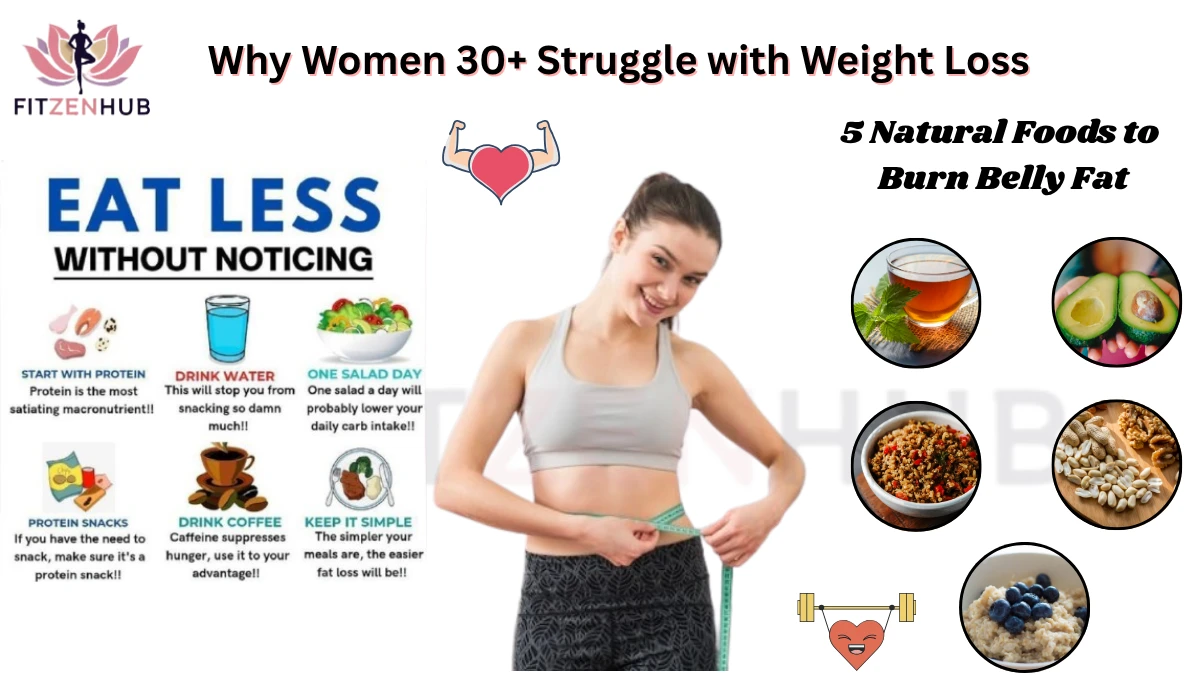
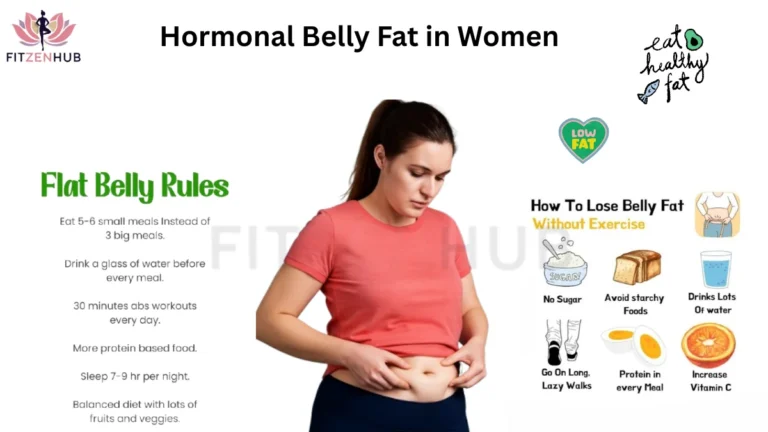
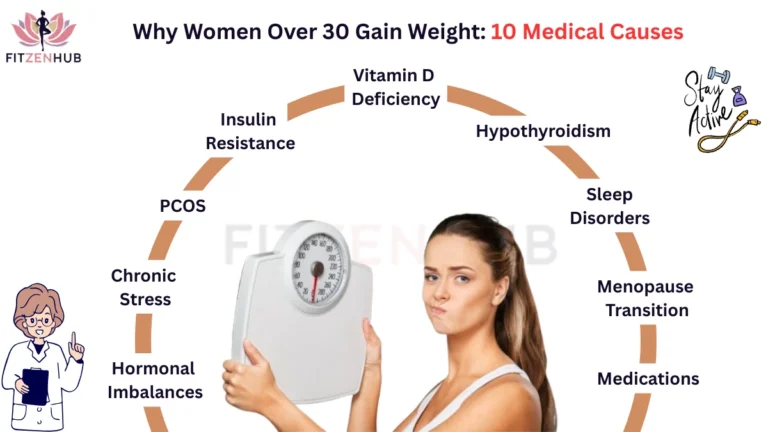
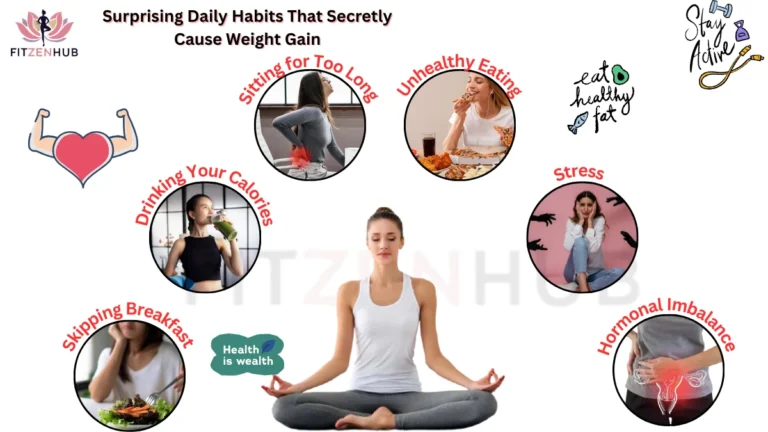
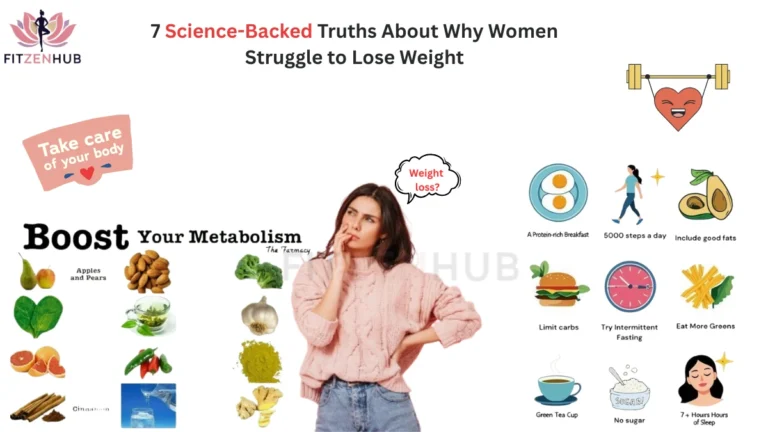
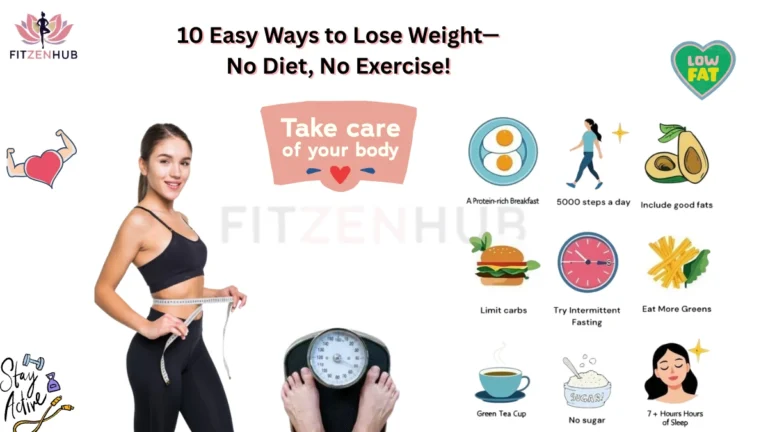
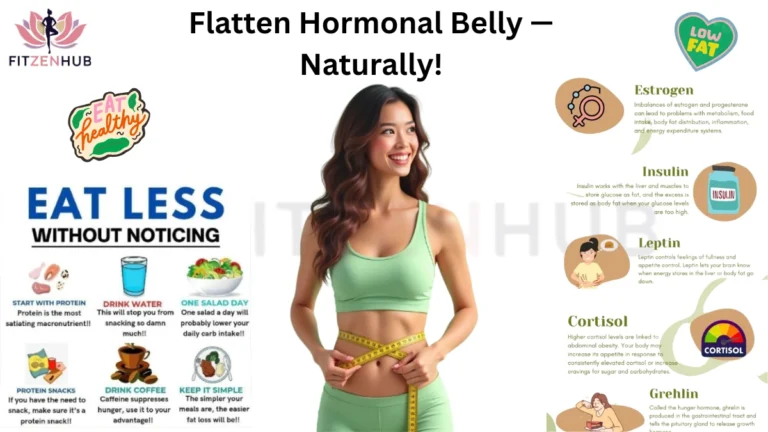
One Comment